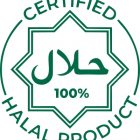Halal Certifications in the UK: Complete Guidance
Halal food and products are important for Muslims around the world. In the UK, halal certifications ensure that food, drinks, and other products meet Islamic standards. These certifications make it easier for Muslims to choose what they can consume. This article will explain what halal certification UK is, how it works, and why it’s important for Muslims in the UK.
What is Halal Certification?
Halal certification is a process that ensures a product complies with Islamic law, known as Sharia. Halal means “permissible” in Arabic, and it refers to what is allowed for Muslims to consume or use. For food and drink, this includes ensuring that meat comes from animals slaughtered in a specific way. It also ensures that no haram (forbidden) ingredients are used, such as alcohol or pork. A halal certification is issued by a recognized body, which inspects and verifies that the product meets these standards.
Why is Halal Certification Important?
Halal certification is important because it gives Muslims confidence that the products they consume meet Islamic guidelines. It also helps Muslim consumers avoid products that are not allowed under their faith. For businesses, obtaining halal certification shows respect for Muslim customers and expands their market. In the UK, halal certification helps businesses reach a growing Muslim population and demonstrates a commitment to ethical and religious standards.
The Halal Certification Process
The process of getting halal certification in the UK involves several steps. First, a business must apply to a halal certification body, which is recognized by the Muslim community. These bodies inspect the entire production process, from the sourcing of ingredients to the final product. If the product meets the halal criteria, the certification body will issue a halal certificate. This certificate must be renewed regularly, and businesses must continue to meet the required standards to maintain their halal certification. The most common certification bodies in the UK are the Halal Food Authority (HFA), the Halal Monitoring Committee (HMC), and the Muslim Consumer Group (MCG).
Halal Standards for Food and Drink
Halal certification covers various food and drink products, including meat, dairy, and beverages. For meat, halal standards include specific methods of slaughter, which ensure the animal is treated humanely and that blood is drained from the body. Additionally, halal meat must not come from animals that are prohibited in Islam, such as pigs. Other food products must not contain any haram ingredients, such as alcohol or certain enzymes derived from animals. Halal certification bodies also ensure that cross-contamination does not occur between halal and non-halal foods during production or packaging
Halal Certification for Non-Food Products
Halal certification is not limited to food and drink. Many Muslims also seek halal-certified products in other areas, such as cosmetics, cleaning products, and pharmaceuticals. These products must meet specific criteria to be considered halal. For example, cosmetics and skincare items should not contain alcohol, which is forbidden in Islam. Halal certification in non-food products helps Muslim consumers feel confident that everything they use is in line with their faith.
The Role of Halal Certification Bodies
Halal certification bodies play a key role in ensuring that products are halal. These organizations are responsible for inspecting factories, reviewing ingredient lists, and ensuring that halal guidelines are followed throughout the production process. They also provide education and training to businesses on halal standards. These bodies must be trusted by both consumers and businesses. Many halal certification bodies are members of larger organizations, such as the European Halal Development Agency (EHDA), which works to promote halal standards globally.
Halal Certification and the UK Market
The halal market in the UK is growing. According to recent studies, the demand for halal-certified products is increasing, not only from Muslims but also from non-Muslim consumers interested in ethical and health-conscious products. Many supermarkets, restaurants, and food manufacturers in the UK now offer halal-certified options. Halal certification helps businesses cater to this expanding market. It also opens up new export opportunities for UK businesses, especially to Muslim-majority countries.
How to Find Halal-Certified Products in the UK
Finding halal-certified products in the UK is easier than ever. Many food stores and supermarkets label their products with a halal certification logo. This makes it simple for Muslim consumers to identify halal products while shopping. Additionally, many restaurants and fast food chains in the UK offer halal-certified options. Online retailers also sell a wide range of halal-certified products, from food and drink to cosmetics and cleaning items. It’s always a good idea to check the halal certification logo and ensure the product is certified by a recognized body.
Conclusion
Halal Certification For Cosmetics in UK
plays an important role in making sure that food and products meet Islamic standards. It helps Muslim consumers make informed choices and gives businesses the opportunity to serve a growing market. Whether it’s for food, drinks, cosmetics, or other products, halal certification ensures that items are safe, ethical, and meet the needs of Muslim consumers. With the growing demand for halal products, the halal certification process in the UK will continue to be an essential part of the food and product industry.



Leave a Reply
Want to join the discussion?Feel free to contribute!